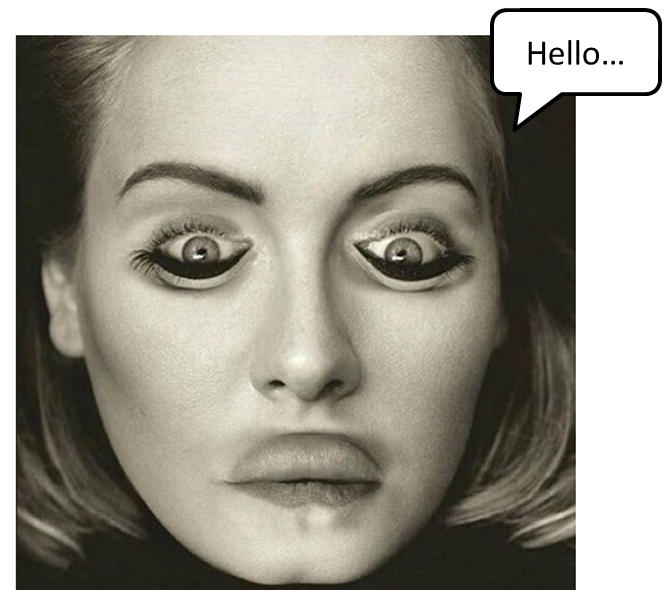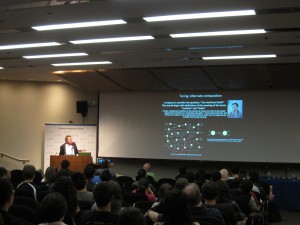-
Adele and the Margaret Thatcher Effect

Adele’s face is the latest victim of a viral illustration of perceptual illusions. During the past week, an image of Adele’s upside down-face has gone viral on the internet, with instructions that read “turn your phone upside down” or “look at the image upside down.” If you haven’t done the experiment yourself, it looks something…
-
Can I become more inspired?

“Do one thing every day that scares you.” —Eleanor Roosevelt Happy new year! (It still counts as the new year, right?) How are you doing on your New Year’s resolutions? If you’re like a lot of people, you might be beginning to lose sight of them. Research has found that a little over a third…
-
May the Force be with you–while you wait

It has been a long year since the teaser trailer for Star Wars: Episode VII was first released and the opening showing of the film prior to the film’s wide release has finally arrived. But the wait does not end there! Here is a picture of a group of moviegoers queuing to enter the theatre.…
-
Presenting Psychology: 10 Ways to Polish Up Your Research Presentation

Gone are the days in which promising scholars could conduct brilliant scientific work, write compelling and cogent articles and books, and be forgiven by all for having no clarity or articulation when attempting to talk about it in person! …If those days existed at all. Scientific communication takes many forms, but virtually all graduate students, faculty,…
-
Bewonderment: Awe and other stupefying things

“The atoms of our bodies are traceable to stars that manufactured them in their cores and exploded these enriched ingredients across our galaxy, billions of years ago. For this reason, we are biologically connected to every other living thing in the world. We are chemically connected to all molecules on Earth. And we are atomically…
-
Highlights of “Building Minds”

For those who missed “Building Minds: Microchips & Molecules”, here is a taste of the action. For all who packed the CNSI auditorium in May for our annual interdisciplinary symposium, here is a quick trip down memory lane. Enjoy! Gimzewski (’15 symposium) UCLA’s James Gimzewski cited Alan Turing in his talk describing his research on…
-
Internet and the teen brain: what do we know, and what should we be asking?

Teenagers—and more specifically, their brains—are having something of a moment in the psychological literature and popular press. Noninvasive imaging tools like fMRI allow us to peek at adolescents’ cognition in real time, and to build a better understanding of the brain’s developing structure. You may be familiar with research suggesting that the brain continues to…
-
How can we best predict how long someone will live?

If you had to guess how long a person will live, what would you want to know about them? In other words, what single piece of information best predicts longevity? This was a central question addressed by renowned demographer Noreen Goldman, from Princeton University, in a recent lecture at UCLA – and her answers were…
-
The Defiant Optimism of Understanding

‘Human life is beyond comprehension.’ There are literally hundreds of these seemingly benign, brain-teasing quotes I could have picked. Hundreds of pithy-sounding wisdoms taking stabs at poorly unpacked concepts that are given transcendent reverence because they claim to reveal ethereal nature. Quotes on how the sublime, consciousness, justice, mystery of life are actually beyond our…
